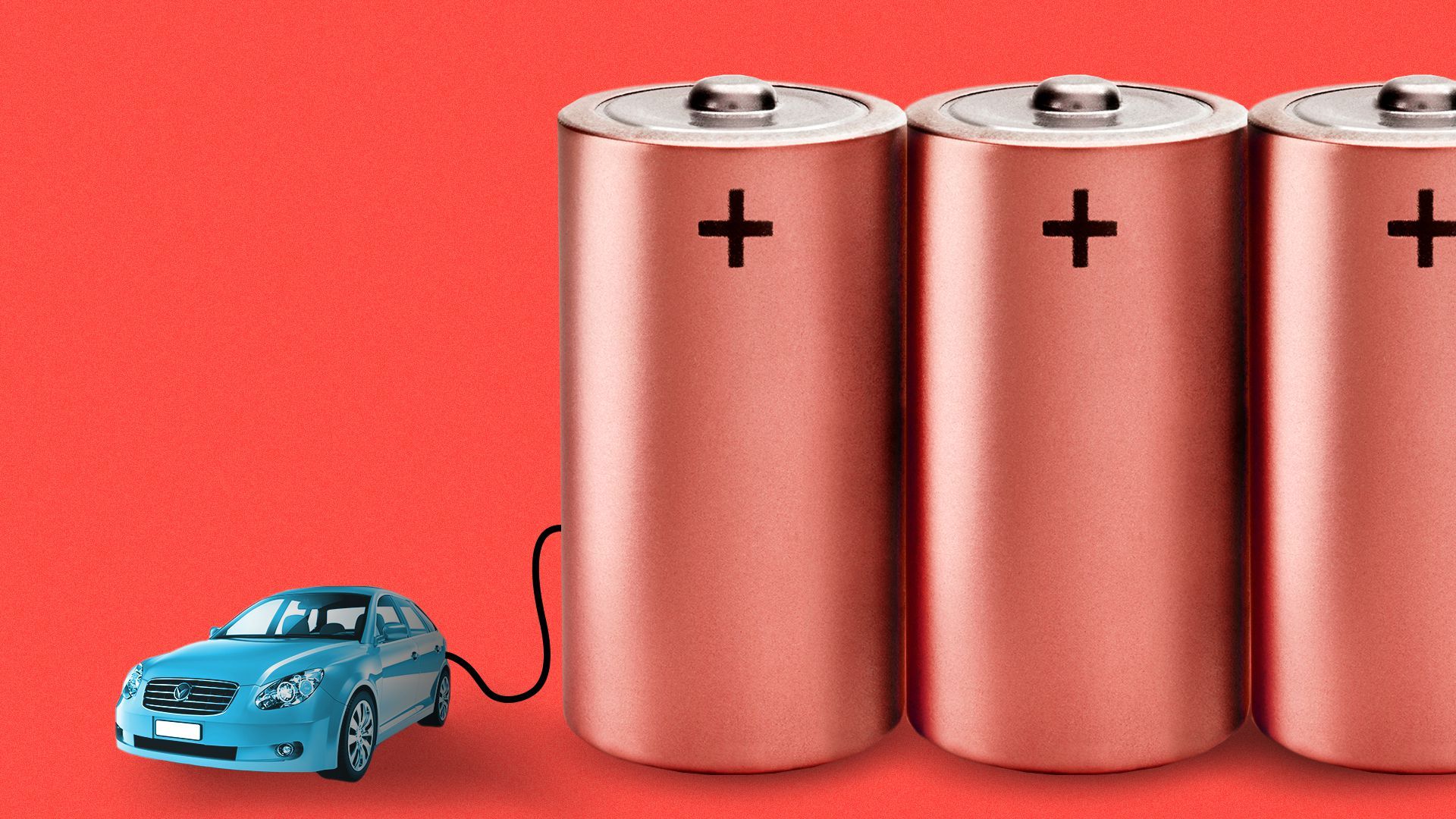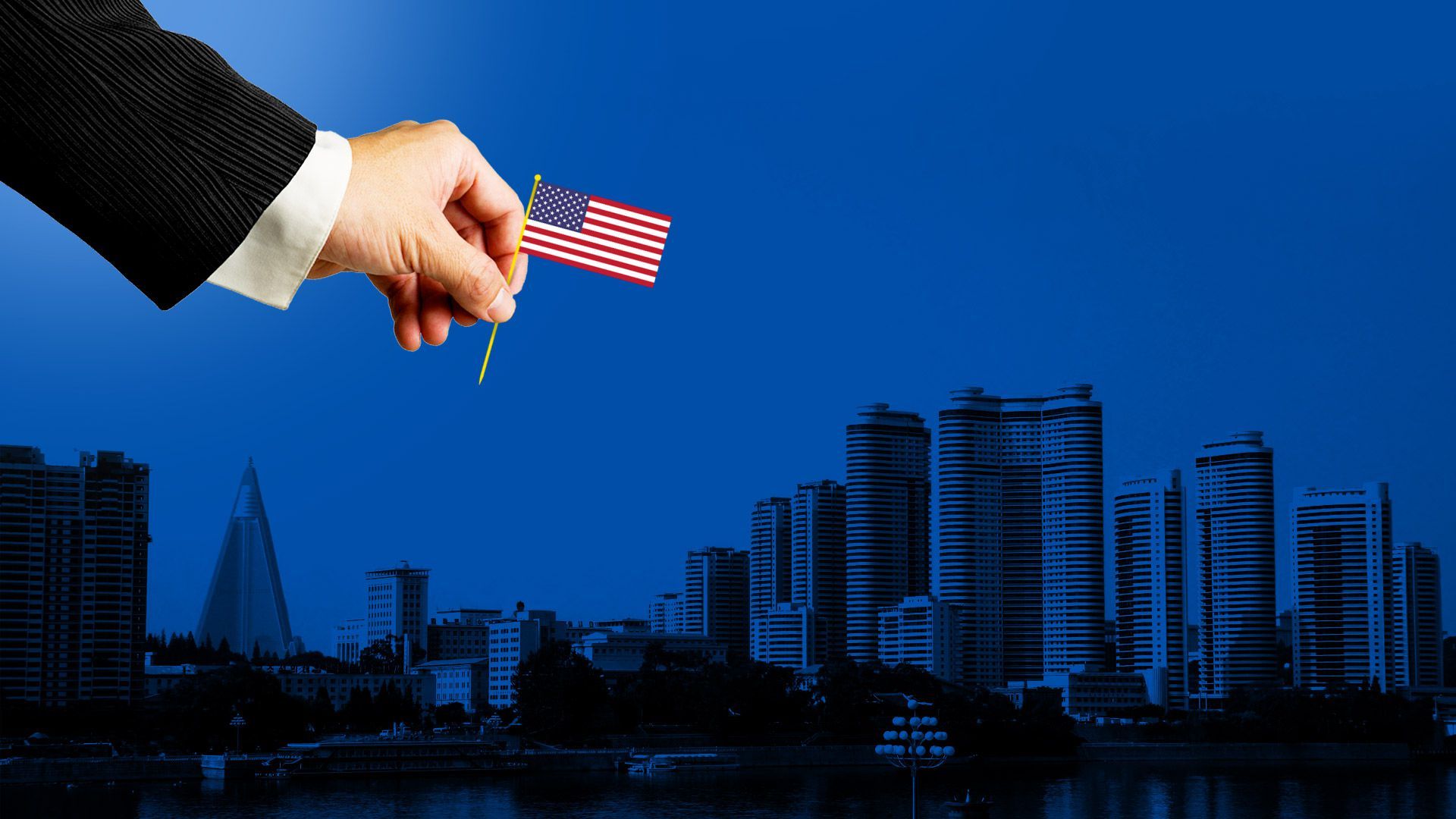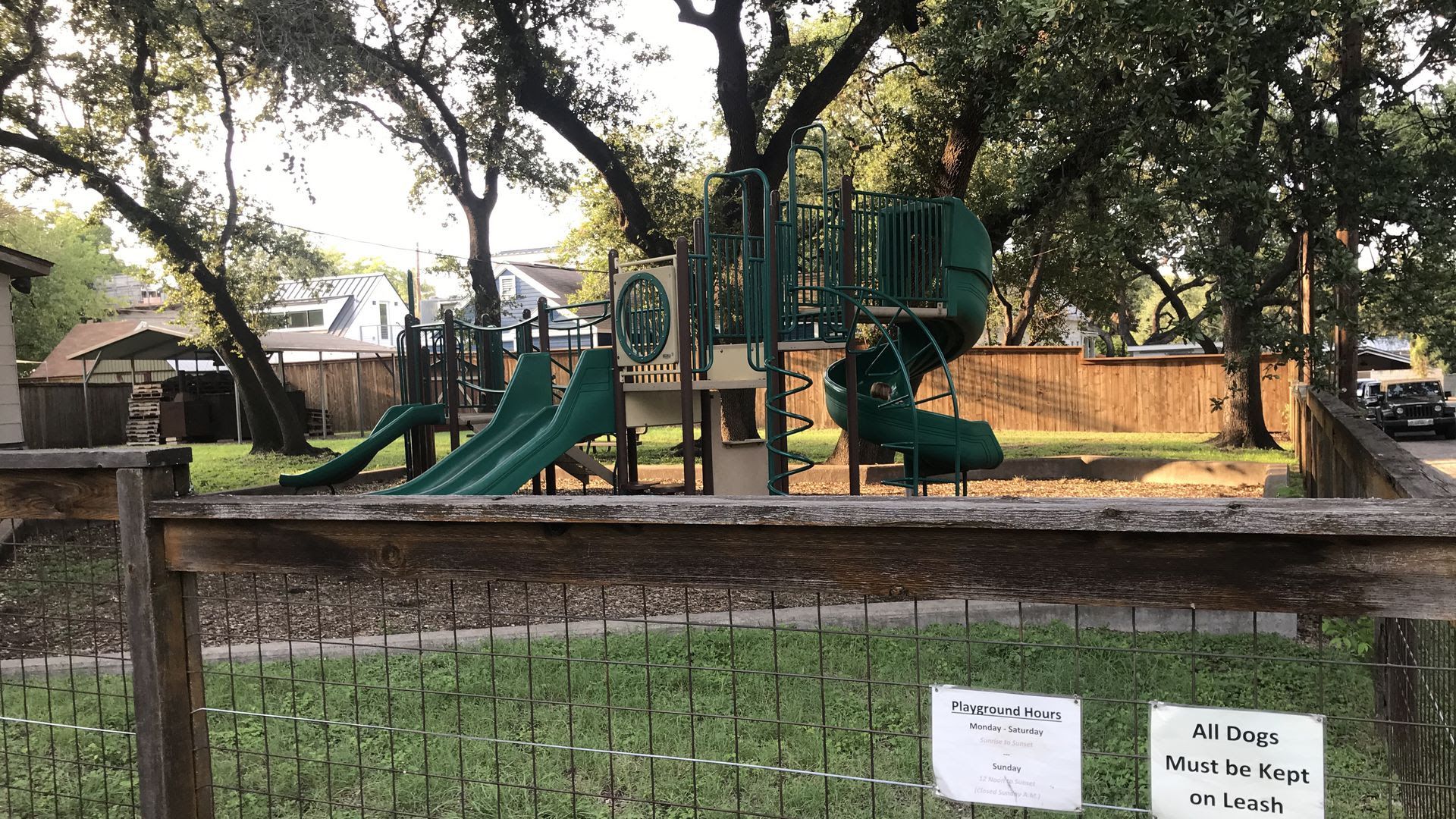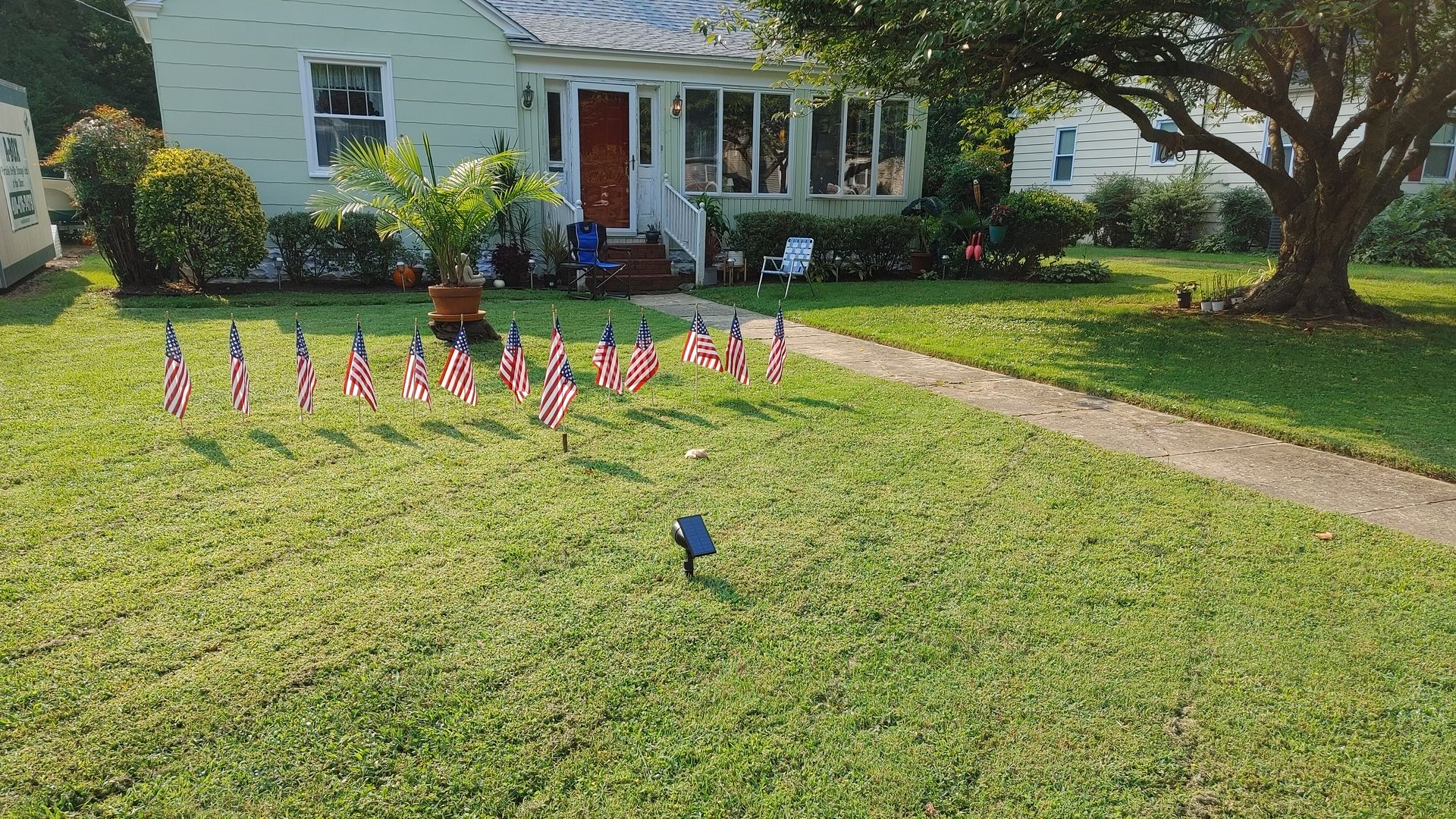| | | | | | | Presented By Charter Communications | | | | Axios What's Next | | By Jennifer A. Kingson, Joann Muller and Erica Pandey ·Sep 28, 2021 | | Ford Motor Company made a bold statement last night, declaring the future to be a place where electric vehicles rule the roads. Joann Muller fills us in. - Meanwhile, today's What's Next photo comes from Steve Rideout of Cambridge, Maryland, who was moved by a neighbor's lawn display.
- Do you have a picture to share with us that says something about the current — and future — state of affairs? Send it to whatsnext@axios.com.
Today's Smart Brevity count: 948 words ... 3.5 minutes. | | | | | | 1 big thing: Ford's whopping investment in our electric vehicle future |  | | | Rendering of Ford's Blue Oval City manufacturing complex planned for Tennessee. Image: Ford | | | | Ford is making a historic investment in electric vehicle manufacturing with an $11.4 billion plan to build a new EV assembly plant and at least three battery factories, employing nearly 11,000 people, Joann writes. Why it matters: The plan is an all-in bet on the biggest transformation of the auto industry since the dawn of the horseless carriage more than a century ago. The big picture: Ford says its plan is the company's largest single manufacturing investment in its 118-year history and the first step in creating a sustainable U.S. supply chain for electric vehicles. - The vision could also seal the legacy of Bill Ford, the 64-year-old great-grandson of Henry Ford.
Details: Ford is planning a 3,600-acre "mega campus" in Stanton, Tennessee, about 50 miles northeast of Memphis. - The complex, dubbed Blue Oval City, will be "the largest, most advanced, and efficient facility in Ford's history," the company says.
- It will include a battery plant and related supplier facilities as well as a new vehicle assembly plant, where Ford plans to expand production of electric F-series pickup trucks.
In Kentucky, Ford will build twin battery plants in a new complex called BlueOvalSK Battery Park about 50 miles south of Louisville. - It is a joint venture with Ford's South Korean battery partner, SK Innovation.
- Production of advanced lithium-ion batteries will begin in 2025, to power future Ford and Lincoln EVs.
Context: Ford had been laying the groundwork for Monday's news in a string of recent EV-related announcements. - The automaker said last week it will partner with battery recycling company Redwood Materials on a domestic supply chain for electric vehicle batteries that relies on closed-loop recycling.
- Redwood will likely build a recycling and processing facility on the Blue Oval City campus, but those details have yet to be shared.
- Ford also said recently it is investing $250 million in Michigan to boost production of its upcoming F-150 Lightning electric pickup to meet soaring demand.
For the time being, at least, Ford — like other automakers — will have to continue importing battery cells and raw materials from Asia, where most battery production is based. But eventually, it aims to create a so-called "circular supply chain" in the U.S. through recycling. - "If there's anything we've learned from the chip shortage, it's that we need to have a U.S. supply of battery materials," said Lisa Drake, chief operating officer for North America.
What to watch: Blue Oval City will be carbon-neutral, Ford says. The facility will use solar power and technologies that conserve energy and water, as well as processes to capture scrap materials for recycling or processing. Of note: Ford's rival, General Motors, is also investing heavily in battery manufacturing to support its aggressive rollout of EVs. - With its partner LG Energy Solutions, GM is building two giant battery factories in Ohio and Tennessee.
Share this story. |     | | | | | | 2. Bill Ford: We want U.S. to lead EV revolution |  | | | Illustration: Annelise Capossela/Axios | | | | Bill Ford — executive chairman of the car giant and the great-grandson of Henry Ford himself — tells us the company's electric vehicle investment is part of a much bigger effort to put the U.S. at the center of the electric vehicle revolution, Joann reports. The big picture: Ford says these investments will also help the U.S. build its own supply chain for batteries, rather than continuing to import them from Asia — providing economic security, insulation from supply chain disruptions and ultimately bringing down the price of EVs. "We need to, as a country, decide — do we want to have a domestic battery industry? And that's something that's kind of starting tomorrow," Ford said in an interview conducted Monday, before the company publicly announced its new manufacturing plants. Details: "We'll be importing a lot of these batteries initially, but then they stay within our country and start to be remade into American batteries, if you will," Ford told me. - Long term, the plan is to perpetually recycle EV batteries in the U.S., and end imports of batteries made with precious metals like nickel, lithium, cobalt and copper from foreign mines — eventually lowering the cost of EVs.
"That does require us to completely remake our company in many, many ways. And we're in the process of doing that," said Ford. The bottom line: "My great-grandfather was the ultimate sort of disruptor," Ford said. "And I think if he looked at what we're announcing ... he might just say, 'What took you so long?' And he'd be right." Share this story. |     | | | | | | 3. Top 10 markets for commercial real estate |  | | | Illustration: Lazaro Gamio/Axios | | | | Florida and Texas are hot, baby! That's what the National Association of Realtors told us Monday in its latest report on commercial real estate, Jennifer A. Kingson writes. What they're saying: Things are going well in apartment buildings and industrial properties — where vacancy rates are at historic lows — but not in hotels or in office buildings, partly because "many occupied spaces remain largely void of workers," NAR said. In alphabetical order, the top commercial markets are: - Austin, Texas
- Boise, Idaho
- Chattanooga, Tennessee
- Daytona Beach, Florida
- Miami
- Myrtle Beach, South Carolina
- Omaha, Nebraska
- Palm Beach, Florida
- Provo, Utah
- San Antonio
What they're saying: "Work-from-home flexibility looks to be the defining shift of the new post-pandemic economy," Lawrence Yun, NAR's chief economist, said in a press release. |     | | | | | | A message from Charter Communications | | Charter is #1 in rural internet service | | |  | | | | We're proud to announce that Spectrum Internet ranks No. 1 in the U.S. News & World Report 2021-22 "Best Rural Internet Service Providers" survey. This recognition underscores our ongoing commitment to connecting more communities from coast to coast. | | | | | | 4. 🤫 … Secret playgrounds |  | | | An empty playground on church property in South Austin, Texas. Photo: Asher Price/Axios | | | | With COVID-19 hospitalizations still high, some parents are taking their children to what they call "secret playgrounds," as Asher Price writes in Axios Austin, which made its debut yesterday (subscribe here). The big picture: Because kids under age 12 can't get vaccinated yet, many parents are trying to find ways to tamp down COVID-19 spread and keep their children healthy. - Secret playgrounds are the half-forgotten slides, swings and monkey bars found on the side of a church or swaddled in a quiet neighborhood.
- Asher's family began uncovering them during the early days of the pandemic, when yellow caution tape wrapped around Austin's school playgrounds.
|     | | | | | | 5. Reader photo of the day |  | | | Photo: Steve Rideout | | | | What's Next: Melancholy patriotism - Steve Rideout of Cambridge, Maryland, writes: "A neighbor's memorial display: 13 flags for the 13 members of our military recently killed in Afghanistan and a single flag denoting our county in distress."
|     | | | | | | A message from Charter Communications | | Charter is #1 in rural internet service | | |  | | | | We're proud to announce that Spectrum Internet ranks No. 1 in the U.S. News & World Report 2021-22 "Best Rural Internet Service Providers" survey. This recognition underscores our ongoing commitment to connecting more communities from coast to coast. | | | | Be on the lookout for photos that speak to What's Next in our lives. Send them to whatsnext@axios.com. Was this email forwarded to you? Subscribe here to Axios What's Next. |  | | It'll help you deliver employee communications more effectively. | | | | | | Axios thanks our partners for supporting our newsletters. If you're interested in advertising, learn more here.
Sponsorship has no influence on editorial content. Axios, 3100 Clarendon Blvd, Suite 1300, Arlington VA 22201 | | | You received this email because you signed up for newsletters from Axios.
Change your preferences or unsubscribe here. | | | Was this email forwarded to you?
Sign up now to get Axios in your inbox. | | | | Follow Axios on social media:    | | | | | |









No comments:
Post a Comment